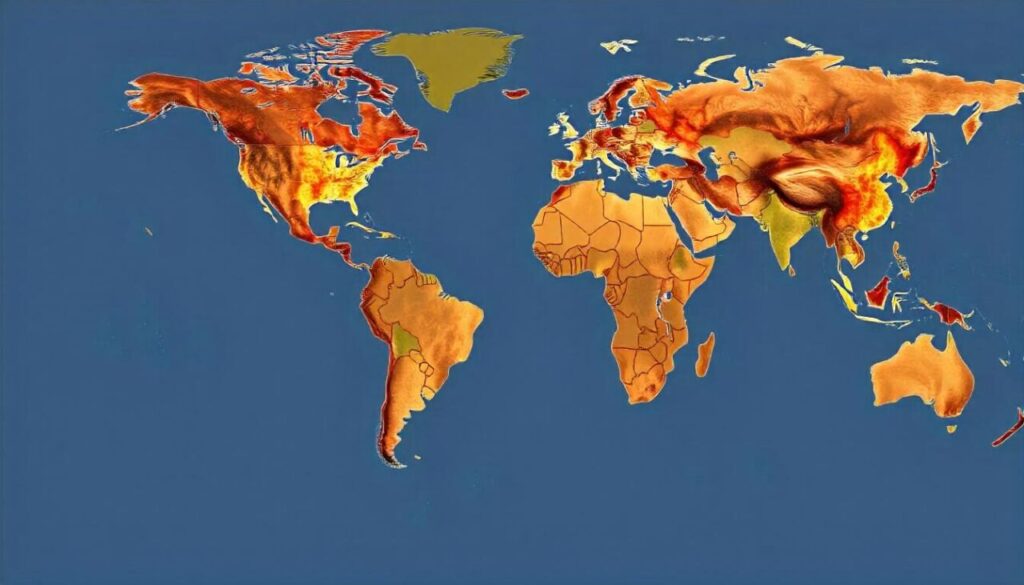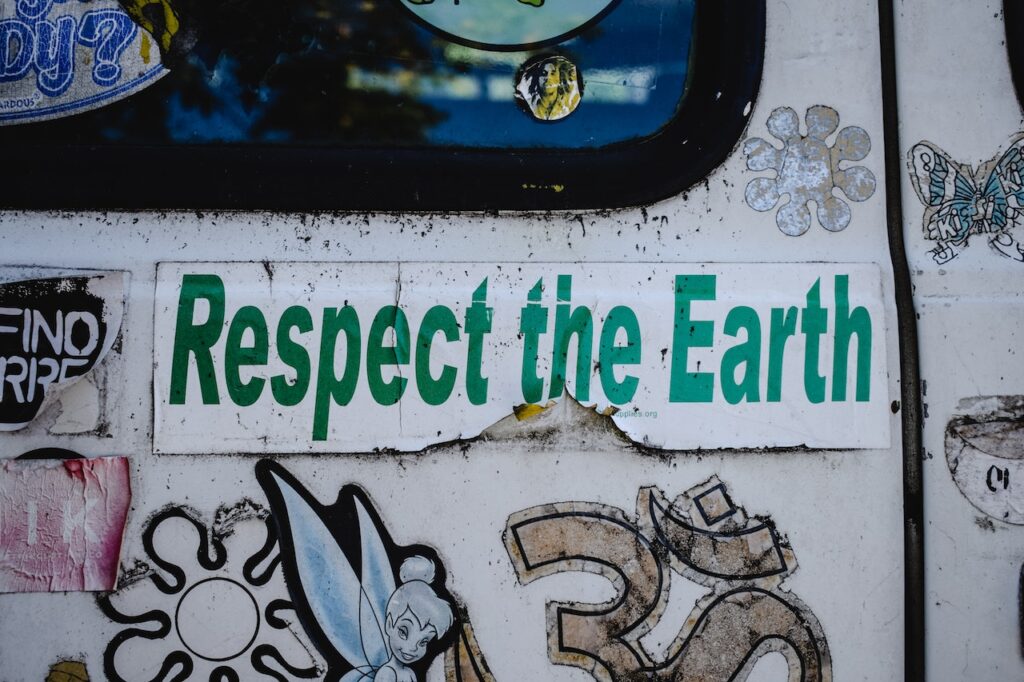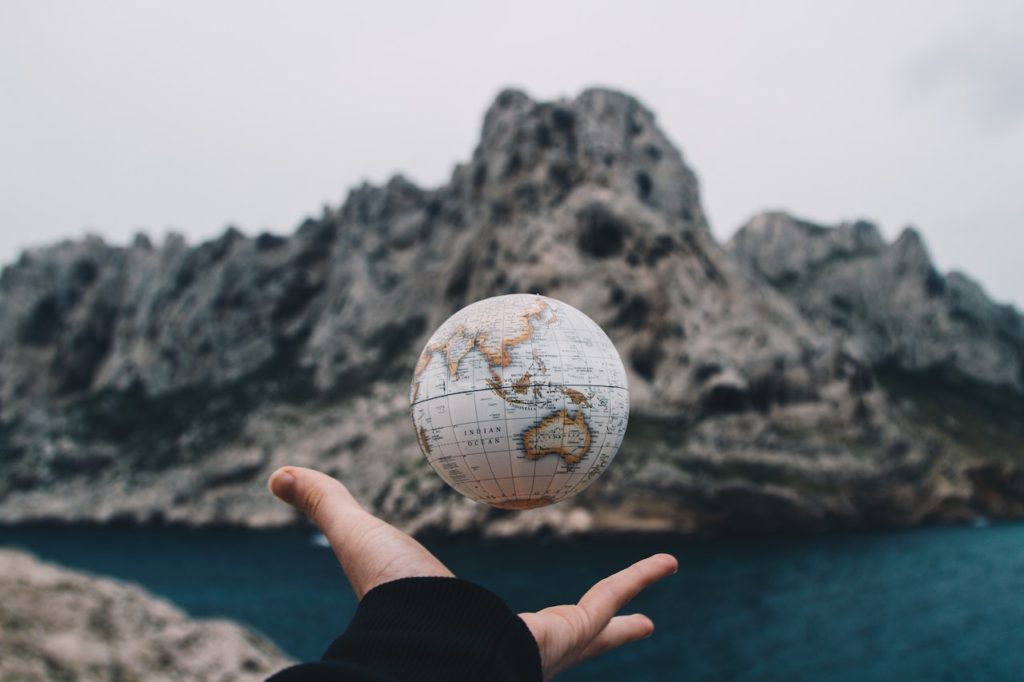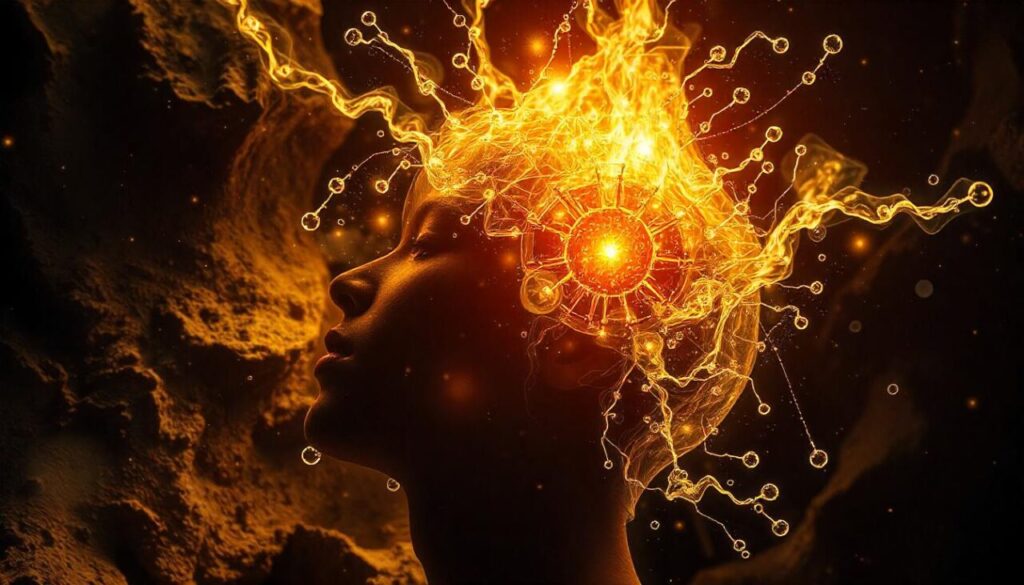
This is a question that all of us have thought about at some point—whether while lying in bed late at night, lost in deep thought, or during a lively conversation with friends after a few beers.
What if humans had never existed? Or what if, one day, we simply vanished without a trace? How would the world change in our absence? Would nature reclaim everything we built, and if so, how quickly? Would any signs of our existence remain, or would the planet erase us entirely over time?
This thought experiment stretches the limits of our imagination, forcing us to consider the far-reaching consequences of our disappearance. After all, we have shaped the Earth more than any other species, altering landscapes, constructing huge cities, and influencing the climate itself.
But without us, what would really happen to the natural world and to the Earth as a whole.
Let’s see…
Nature Reclaims Its Dominion

Without humans, nature would quickly take over again. Forests would grow thick and full of life, with animals walking around (or flying, slithering, or swimming) everywhere. Without pollution or human interference, rivers would run clean and nourish the land.
Ecosystems would flourish, bringing back a balance we can hardly imagine today. The world would transform into a wild, untouched paradise. And very fast actually.
Basicaly following would happen in our cities:
- Within a few years, plants would grow through roads and buildings, while wild animals would return to urban areas.
- Over decades, structures would collapse, forests would take over, and rivers would reshape the land.
- After centuries, most traces of human civilization would vanish, leaving behind only a few stone structures as reminders of our existence.
Interesting fact: Humans have produced over 8.3 billion metric tons of plastic since its mass production began in the 1950s. Unfortunately, a significant portion of this plastic waste ends up in the oceans, harming marine life and polluting ecosystems.
The Unfolding Evolutionary Journey in the Absence of Humans

In a world where humans never existed, the course of evolution would take a different trajectory, shaped solely by the interplay of natural forces and environmental pressures. Without human interference, species would continue to adapt and evolve in response to changing conditions, leading to the emergence of new traits, behaviors, and ecological relationships.
Over long periods of time, species would undergo gradual transformations driven by natural selection. Adaptations that once favored survival in human-altered environments would no longer be relevant, allowing for new traits to emerge and prevail.
Natural selection would act as the guiding hand, favoring those individuals best suited to their specific habitats and challenges.
Interesting fact: Did you know that some marine mammals, such as dolphins and whales, evolved from terrestrial ancestors and transitioned back to an aquatic lifestyle over millions of years?
In the absence of human-driven habitat destruction and exploitation, ecosystems would evolve in interesting ways. Predators (not the movie one) and prey would engage in an ever-evolving dance, where strategies of pursuit and evasion constantly adapt to ensure survival.
The absence of human hunting practices would also influence the balance of predator and prey populations, potentially leading to the proliferation of certain species or the rise of new apex predators.
Furthermore, the absence of human-mediated climate change would shape evolutionary trajectories on a global scale. Species that are particularly sensitive to changing temperatures and altered ecosystems would face different pressures, potentially resulting in new patterns of adaptation and speciation.
As Earth’s climate continues to fluctuate naturally, the unfolding story of evolution would be guided solely by the dynamic interplay between organisms and their environment.
Interesting fact: Did you know that climate change has already caused shifts in the timing of animal migrations, breeding patterns, and geographic ranges?
Without human influence, the coevolutionary relationships between species would continue to unfold. Symbiotic partnerships, such as pollinators and flowering plants or cleaner fish and their hosts, would persist and potentially diversify further.
As time stretches forward, the diversity of life on Earth would continue to expand. Most likely new species would emerge, filling ecological niches left vacant by extinct organisms. The process of speciation, driven by geographic isolation, genetic mutations, and natural selection, would contribute to the ever-evolving “textile” of life.
Interesting fact: Did you know that the process of speciation can occur through various mechanisms, such as allopatric speciation (geographic isolation) or sympatric speciation (within the same geographic area)?
A World Without Boundaries

Without humans to invent artificial boundaries (and passports), the concept of nations and borders and, of course, wars would cease to exist.
Animals would roam unhindered across continents. The exchange of genetic material between species would also flourish, leading to the emergence of novel adaptations and evolutionary pathways. The absence of territorial disputes and geopolitical divisions would foster a sense of global unity, where all beings are interconnected and reliant on one another for survival.
Interesting fact: Deforestation caused by human activities is responsible for the loss of around 18.7 million acres (7.6 million hectares) of forests each year. This destruction not only threatens countless plant and animal species but also contributes to climate change by reducing the Earth's capacity to absorb carbon dioxide.
The Legacy of Human Artifacts

While humans may no longer exist, some remnants of our civilization would endure as a testament to our once-dominant presence. Architectural marvels like the Pyramids of Giza and the Colosseum would stand as silent witnesses to human ingenuity and engineering prowess.
The artifacts left behind, from ancient pottery to intricate artwork, would serve as glimpses into the past, offering invaluable insights into the diverse cultures that thrived before our time. Future beings, should they arise, might stumble upon these relics and marvel at the mysteries of their origin.
The Carbon Cycle and Climate Change

In contemplating a world without humans, it is essential to recognize that climate change has occurred throughout Earth’s history long before our species emerged. Understanding the carbon cycle and the natural drivers of climate change provides a crucial context for envisioning the planet’s climate trajectory in the absence of human activities.
The carbon cycle is a complex process involving the exchange of carbon dioxide (CO2) between the atmosphere, oceans, plants, and soils. Through natural processes such as volcanic activity, the decay of organic matter, and the respiration of living organisms, carbon dioxide is released into the atmosphere.
In turn, plants and oceans absorb CO2 through photosynthesis and dissolution, respectively, helping to regulate its concentration.
Interesting fact: Did you know that volcanic eruptions release substantial amounts of carbon dioxide into the atmosphere, contributing to short-term climate variations?
Over long geological timescales, natural variations in Earth’s climate have been driven by factors such as changes in solar radiation, volcanic activity, continental drift, and variations in the planet’s orbit. These natural drivers have caused significant shifts in global temperatures, ice ages, and the distribution of ecosystems.
However, human activities, particularly the burning of fossil fuels and deforestation, have accelerated the release of CO2 into the atmosphere, leading to unprecedented climate change in recent history. The burning of fossil fuels, such as coal, oil, and gas, releases carbon that has been sequestered underground for millions of years, significantly increasing atmospheric CO2 concentrations.
Interesting fact: Did you know that during the last ice age, approximately 20,000 years ago, atmospheric CO2 concentrations were around 180 parts per million (ppm) compared to the current levels exceeding 400 ppm?
In a world without humans, natural climate fluctuations would still occur. Volcanic eruptions would continue to inject CO2 into the atmosphere, albeit on a smaller scale compared to human activities. Natural processes, such as the decomposition of organic matter and the balance between carbon uptake by plants and release through respiration, would shape atmospheric CO2 levels.
The absence of human-induced emissions, however, would mean a reduction in the rate of CO2 accumulation in the atmosphere. The planet would experience a more gradual rise in CO2 concentrations, driven by natural carbon cycle dynamics.
Over time, the climate would respond to these changes, with periods of warming and cooling influenced by natural drivers and feedback mechanisms.
Interesting fact: Did you know that throughout Earth's history, natural climate variations have triggered mass extinctions, shifts in ecosystems, and the evolution of new species?
It is crucial to recognize that even without human influence, climate change would still occur. However, the absence of anthropogenic emissions would offer an opportunity for ecosystems and species to adapt to these natural climate variations. It would provide a different set of challenges and opportunities for life on Earth, with species evolving and migrating in response to changing climatic conditions.
Human Impact on Planet Earth

The question of whether humans have contributed positively or negatively to planet Earth is certainly very complex. Examining our impact requires acknowledging both the transformative advancements and the detrimental consequences resulting from human activities throughout history.
On one hand, humans have made remarkable achievements that have improved the lives of countless individuals (and some species) and shaped the world we inhabit today. Our capacity for innovation and technological advancements has led to significant improvements in areas such as medicine, agriculture, transportation, and communication.
These advancements have enhanced human well-being, extended lifespans, and connected people across the globe.
Moreover, human cultural, artistic, and intellectual contributions have enriched societies and fostered a deeper understanding of ourselves and the world around us.
Through literature, art, music, and scientific discoveries, we have expanded our knowledge, nurtured creativity, and built bridges of shared experiences across generations and continents.
Note: Check out our literature contribution: Curious Matrix The Book.
On the other hand, our activities have had unintended and often harmful consequences for the planet. The exploitation of natural resources, deforestation, pollution, and the release of greenhouse gases have caused environmental degradation and accelerated climate change.
The expansion of human populations, industrialization, and unsustainable consumption patterns have put immense pressure on ecosystems, leading to habitat loss, species extinction, and disruptions to ecological balance.
Interesting fact: Did you know that human activities have accelerated the current rate of species extinction, leading to what scientists describe as the sixth mass extinction event in Earth's history?
The scale and intensity of human impact on the environment have reached huge levels. The cumulative effect of our actions has altered landscapes, depleted biodiversity, and caused irreversible damage to delicate ecosystems.
The consequences of these actions extend beyond ecological concerns, affecting human societies through the loss of natural resources, increased vulnerability to natural disasters, and the potential for social and economic instability.
However, it is essential to acknowledge that humans have also demonstrated adaptability and the capacity for positive change.
Increasingly, there is a growing awareness of the need for sustainable practices, conservation efforts, and the development of clean technologies to mitigate and reverse the negative impacts of human activities.
Ultimately, the assessment of human contributions to planet Earth cannot be reduced to a simple binary judgment. It requires a nuanced understanding of the intricate web of interconnectedness between humans, ecosystems, and the Earth’s systems. While our actions have had profound and sometimes detrimental effects, we also possess the capacity for compassion, empathy, and collective action to address the challenges we face.
By acknowledging the impacts of our actions and taking responsibility for their consequences, we have the potential to contribute positively to the planet’s well-being.
Through sustainable practices, conservation efforts, environmental education, and ethical decision-making, we can strive to restore balance, protect biodiversity, and ensure a livable planet for future generations.
Conclusion

Humans have left a huge mark on planet Earth, with both positive contributions and negative consequences. Our capacity for innovation, creativity, and cultural achievements has shaped the world in remarkable ways.
However, our activities have also resulted in significant environmental degradation, posing challenges to the well-being of both ecosystems and human societies.
Recognizing the complexities of our impact, it is crucial to strive for sustainable practices and responsible stewardship of the planet.
By harnessing our ingenuity and collective will, we can mitigate the negative consequences of our actions, restore ecosystems, and work towards a harmonious coexistence with the natural world. The future of our planet lies in our hands (or matrix), and it is our responsibility.
…and as usual, here are some interesting facts related to the topic:
Top 5 Interesting Facts: The Dark Side of an Earth Without Humans: Negative Consequences Unveiled

1. Ecological Disruption: Without humans, ecosystems would undergo a significant disruption. Many species have become dependent on human-altered habitats and resources, such as urban areas and agriculture. The sudden absence of human presence would leave these species struggling to adapt and find new sources of food and shelter.
2. Loss of Domesticated Animals: Domesticated animals, such as dogs, cats, and livestock, have been selectively bred and cared for by humans for thousands of years. In a world without humans, these animals would face challenges in terms of survival, as they have become reliant on human-provided food, shelter, and medical care.
3. Cultural and Scientific Loss: The absence of humans would mean the loss of rich cultural diversity and the vast knowledge accumulated over centuries. Our cultural heritage, including literature, art, music, and scientific discoveries, would be left behind with no one to appreciate or build upon it. This loss of human achievements and contributions would be a significant setback for the progress of society.
4. Neglected Infrastructure: With no humans to maintain and repair infrastructure, buildings, roads, and other human-made structures would slowly deteriorate. Over time, without regular maintenance, structures could collapse, leading to potential environmental hazards and safety concerns.
5. Uncontrolled Wildlife Populations: In the absence of human management and intervention, wildlife populations could experience unchecked growth and imbalances. The lack of hunting, conservation efforts, and ecosystem management practices could result in overpopulation of certain species, leading to food scarcity, habitat degradation, and competition for resources among wildlife themselves.
While imagining a world without humans may evoke thoughts of nature reclaiming its spaces, it’s important to recognize the potential negative consequences that would arise from our sudden disappearance. Humans play a complex role in shaping and managing the world, and our absence would have far-reaching impacts on both natural and human-made systems.
Note: If you enjoyed this article you might also enjoy following articles:
- What Would Happen If Everyone Stopped Spending Money?
- When Will The World End? The Ultimate Guide!
- What If Everyone Stopped Working?
- What would happen if Moon disappeared?
- What Would Happen If The Moon Exploded
- What Would Happen If Jupiter Disappeared?
- What Would Happen If You Fell Into A Black Hole?
- What Would Happen If The Moon Exploded
- What Would Happen If The Earth Stopped Spinning?
- What If Everyone On Earth Jumped At The Same Time?
- What would happen if water disappeared on Earth?
- What would happen if lying never existed?
- What would happen if gravity suddenly disappeared?
- What would happen if everyone stopped having children?
- What would happen if mosquitoes went extinct?
- …and many more.
Note: If you’re interested in other similar articles, on topic of “World without…”, you can check:



























